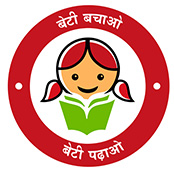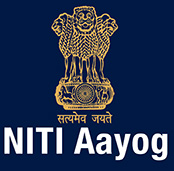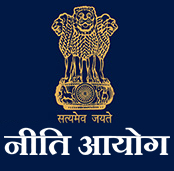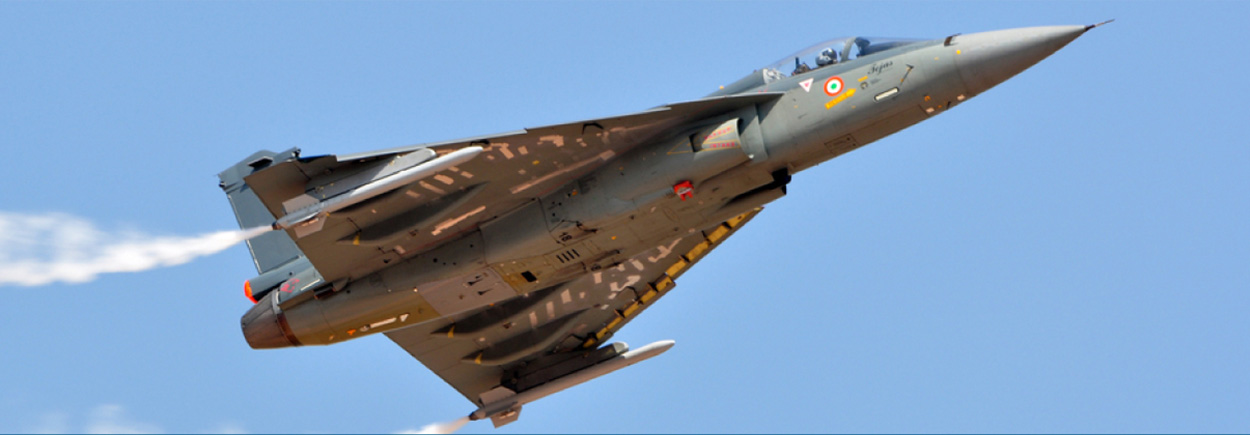- Overview
-
The Division seeks to strengthen the science, technology and innovation ecosystem in the country in association with Central Scientific Departments/Agencies by formulating science- and technology-specific plans/programmes and policies. - Core Functions
-
-
The S&T Division of NITI Aayog is the nodal division for all matters related to science and technology. This includes examination and appraisal of S&T programmes of Agencies/Departments such as the Department of Science and Technology, the Department of Biotechnology, the Department of Scientific and Industrial Research, including the Council of Scientific and Industrial Research, the Department of Space, the Ministry of Electronics and Information Technology, the Department of Telecommunications, the Department of Posts, the Ministry of Earth Sciences and the Department of Atomic Energy.
-
With the aim of promoting the Digital India Mission, the Division provides inputs to the Line Ministries for the formulation of appropriate policies to ensure the availability of reliable and secure modes of digital connectivity.
-
The Division is also involved in policy interventions for various initiatives such as methanol economy, ‘Make in India’ body armour, National Research Foundation, hydrogen economy and seaweed cultivation, to name a few. Besides, it is also engaged in activities like the formulation of the India Innovation Index, improving India’s ranking in the Global Innovation Index, desalination of water and the standardisation of the construction, maintenance and operation of ropeways, etc.
-
- Partners
-
Institute for CompetitivenessInstitute for Competitiveness is a knowledge partner of NITI Aayog for formulating and releasing the India Innovation Index annually.
Methanol Institute
The strategic partnership between NITI Aayog and Methanol Institute, USA, is dedicated to further the goals of achieving a methanol economy in India. The Statement of Intent fosters a scientific partnership between the two organisations through the exchange of data on all aspects of a methanol economy.
- Administrative Ministries
-
-
Department of Science and Technology
-
Department of Biotechnology
-
Department of Scientific and Industrial Research, including the Council of Scientific and Industrial Research
-
Department of Space
-
Ministry of Earth Sciences
-
Department of Atomic Energy
-
- Reports
-
Global Innovation IndexNITI Aayog has been continuously working towards improving India’s ranking in the global indices, including the Global Innovation Index. The S&T Division is the nodal department in NITI with respect to improving India’s ranking in the Global Innovation Index. The Division has been in touch with the publishing agency World Intellectual Property Organisation as well as the Line Ministries to address gaps in the availability of reliable data. NITI Aayog is also working proactively towards bringing policy interventions that could leverage India’s underlying potential. Due to NITI Aayog’s sustained efforts, India improved its global position from the 52nd position in 2019 to the 48th position in 2020. The S&T Division is constantly in touch with top-ranking countries such as Switzerland and Sweden in the Global Innovation Index to understand their best practices for improving India’s ranking. Read the latest report here
India Innovation Index
The India Innovation Index is released by NITI Aayog every year, with the Institute for Competitiveness as a knowledge partner. The Index attempts to create an extensive framework for the continuous evaluation of the innovation environment of all States and Union Territories and rank them on the basis of their innovation index scores. NITI Aayog also handholds States and Union Territories in improving their rankings in the Index, which subsequently results in an improvement of India’s ranking in the Global Innovation Index. Read the latest report here
- Projects
-
‘Make in India’ in Body ArmourConsidering the importance of developing indigenous protective gear for defence personnel, an empowered committee was constituted under the chairmanship of Member (S&T), NITI Aayog, to oversee the implementation of the roadmap. Regular meetings are held with industries, users, and various stakeholders to know their concerns and suggest the way forward.
Seaweed Cultivation
The Division has been working with MoEFCC to promote seaweed cultivation in India and resolve outstanding issues. Meetings were held at NITI Aayog with all stakeholders, and a joint study has been undertaken to understand the exact impact of seaweed cultivation on corals and sea grass. For this, data has been collected for five cycles off the coast of Tamil Nadu, around the Gulf of Mannar, and the Palk Bay over a span of one year. The report will be submitted for further consideration to the Ministry and NITI Aayog.
National Research Foundation
The National Research Foundation seeks to fund, coordinate and promote research in the country. As per the direction of the PMO, Member (S&T), along with the Principal Scientific Adviser to the Government of India, is working on finalising the organisational, operational and financial frameworks of the Foundation.
Technical Committee to Standardise Construction, Maintenance and Operation of Ropeways
NITI Aayog had constituted a technical committee in August 2019, under the chairmanship of Adviser (S&T), to standardise the construction, maintenance and operation of ropeways in India. The committee has enabled the formulation of two new standards by BIS, Department of Consumer Affairs, thereby ensuring there is no longer any gap between Indian and European standards regarding the standardisation of manufacture, installation, operation, and maintenance of ropeways in India. After a wide consultative process, the committee submitted its recommendations to all State Governments and Union Territories. Subsequently, the States and UTs were directed to mandate, in all their tenders, work orders, etc., that the manufacturing of ropeways and associated support structures is done in India.
Desalination of Water
With a view to integrate the dispersed efforts of different Departments/Ministries in the domain of desalination in India, the S&T Division organised a meeting on 4 August 2020 in NITI Aayog, with participation from all relevant stakeholders. NITI Aayog is currently developing a white paper on desalination technologies, which would highlight the most promising ones and suggest the way forward.
Hydrogen Economy
NITI Aayog is driving efforts to develop a roadmap for the adoption of hydrogen as a fuel in India. On the direction of PMO, NITI Aayog proposed the constitution of an expert committee comprising eminent scientists, industry leaders and policymakers as members. The terms of reference of the committee are:
-
Review the status and explore the complete feasibility of the application, production, transportation, handling, use, safety aspects, etc., of hydrogen fuel, and suggest a clear roadmap.
-
Examine the utilisation of hydrogen as a fuel through focused research on its development and deployment—production, transportation/storage and consumption.
-
Identify the roles of different stakeholders, their interest and capabilities, budgetary requirements, and the timeline for various deliverables.
The proposal is under consideration of the Cabinet Secretariat. So far, two meetings have been held under the chairmanship of the Vice Chairman, NITI Aayog, with experts to know the critical challenges in launching the hydrogen economy in India and a specific mechanism to address those challenges.
Satellite Communications Policy
The Division has formulated a draft ‘Satellite Communications Policy’ after extensive consultation with Government and industry stakeholders. The policy aims to liberalise and revitalise the satellite communications sector to reap the benefits of affordable satellite connectivity and promote universalisation of broadband. It focuses on creating a conducive regulatory environment to encourage greater investment and private sector participation in the Indian satellite communications ecosystem and increase innovation and technological self-reliance.
Right of Way Guidelines
The Division formulated the draft Right of Way (RoW) Guidelines 2020, which would aid State Governments to notify their RoW policies in a manner that addresses the requirements of all stakeholders—industry, States and local authorities, and citizens—and facilitates faster deployment of telecommunications infrastructure by providing a uniform and fair regulatory environment for RoW permissions.
Monitoring the progress of BharatNet
The Division has been monitoring the progress of BharatNet for providing connectivity to villages in Aspirational Districts.
Working Paper on Science and Technology, Communications and Digital Technologies for Vision Document 2035
The Division has drafted a working paper on the vision for science and technology, communications and digital technologies. The paper was drafted after several rounds of consultations and deliberations with key stakeholders. The document lays down the vision for the sectors in 2035 and suggests policy and regulatory reforms to achieve the mentioned targets.
Development of Knowledge Products
-
Toolkit on Consumer Protection in Digital Age: The toolkit would act as a guiding document for regulators, policymakers, industry and consumers to understand and address consumer protection challenges and protect consumers in this digital age by formulating the relevant policies and regulations.
-
Toolkit on Advanced Digital Communications for India: The Division is supporting a project for the development of an advanced digital communications technologies toolkit, in partnership with European Commission’s DG Connect. The toolkit would identify issues and challenges related to the rolling out of advanced digital technologies and provide guidance for the selection of measures—technical, economic, policy—that should be prioritised in national strategies to support India’s digital transformation.
Group on Technologies to Ensure Connectedness in a Physically Distant WorldIn the wake of the Covid-19 pandemic, a group was established to provide recommendations on technologies to ensure connectedness in a physically distant world. Several senior executives from technology/telecommunications/consulting firms were part of the group. The Division facilitated the working of the group and the deliberations resulted in:
-
Ideation of Unnati, a job platform for both blue-collar and grey-collar workers
-
Recommendations on policy and regulatory changes to support remote working.
-
- Who’s Who
-
Name Designation Email ID Dr. Vivek Kumar Singh Senior Adviser/Programme Director vk[dot]singh78[at]gov[dot]in Dr. Ashok A Sonkusare Deputy Adviser a[dot]sonkusare[at]nic[dot]in Dr. Thyagaraju B.M. Deputy Adviser thyagaraju[dot]bm[at]gov[dot]in Dr. Zeba Consultant Grade 2 zeba[dot]s[at]niti[dot]gov[dot]in Ms. Naba Suroor Consultant Grade 1 naba[dot]suroor[at]nic[dot]in Ms. Simarjot Kaur Consultant Grade 1 simarjot[dot]kaur[at]niti[dot]gov[dot]in Mr. Deepak Narang Consultant Grade 1 narang[dot]deepak[at]niti[dot]gov[dot]in Dr. Pratibha Chanana Consultant Grade 1 pratibha[dot]chanana[at]niti[dot]gov[dot]in Tusha Agarwal Young Professional tusha[dot]agarwal[at]niti[dot]gov[dot]in Akanksha Dhamija Young Professional pratibha[dot]chanana[at]niti[dot]gov[dot]in
Science & Technology
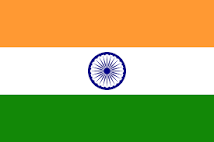 National Portal Of India
National Portal Of India 